Day one of the 3 day Book Sprint in San Francisco (at the Aspiration offices) is done! 2 to go!
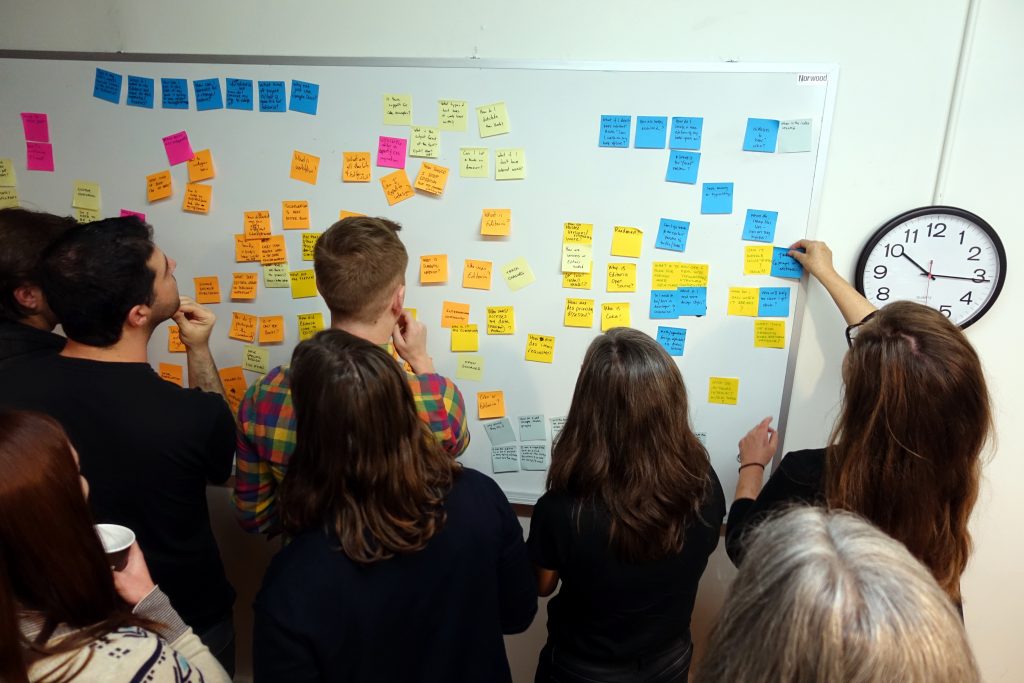
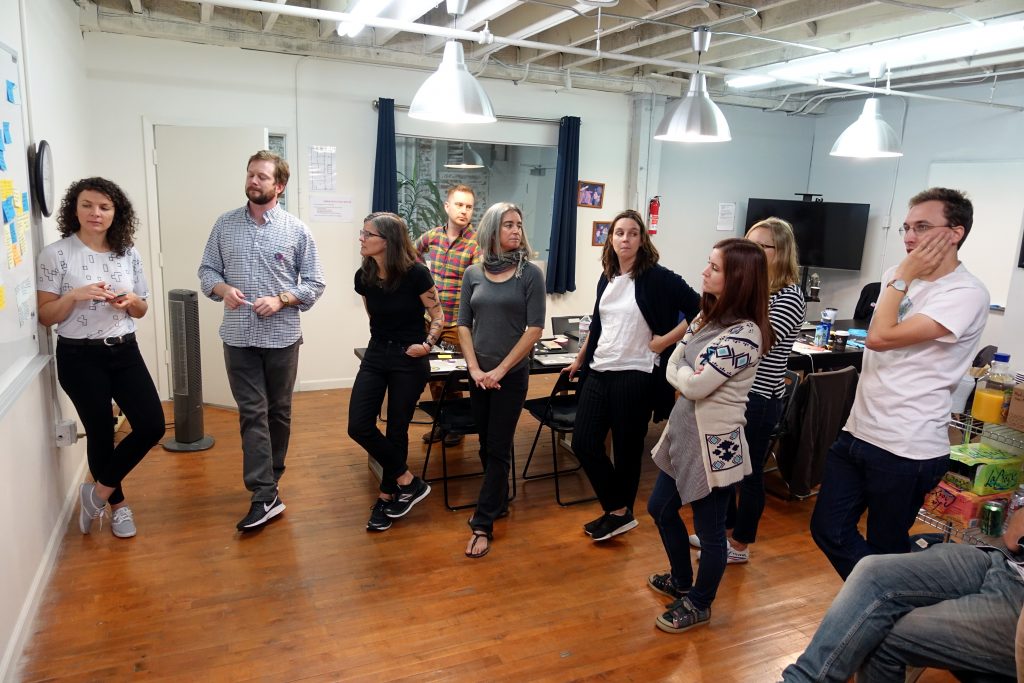
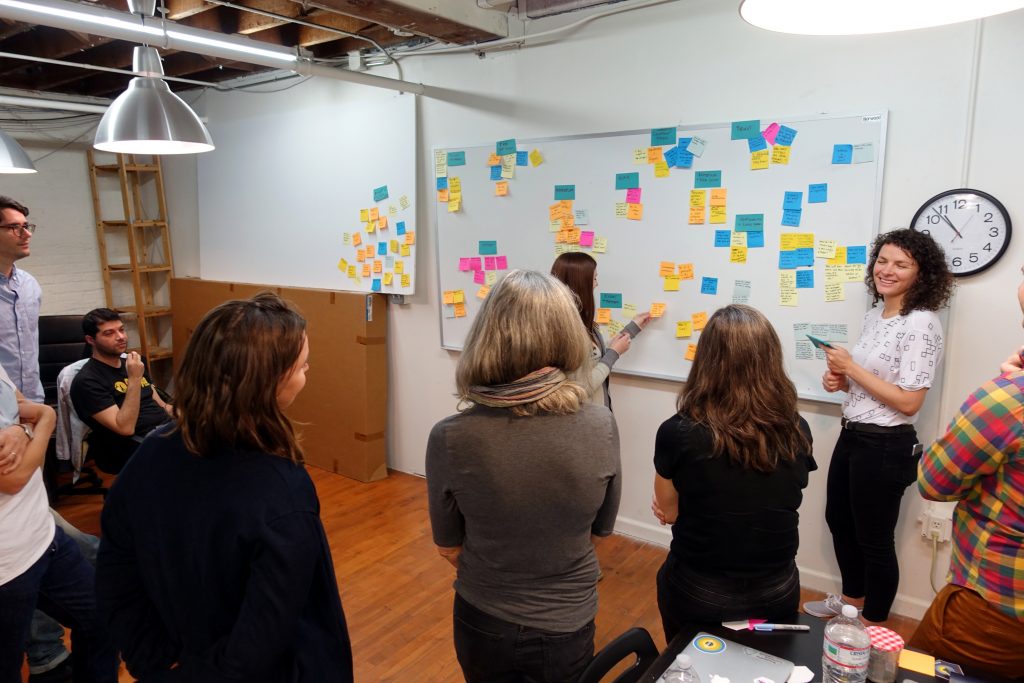
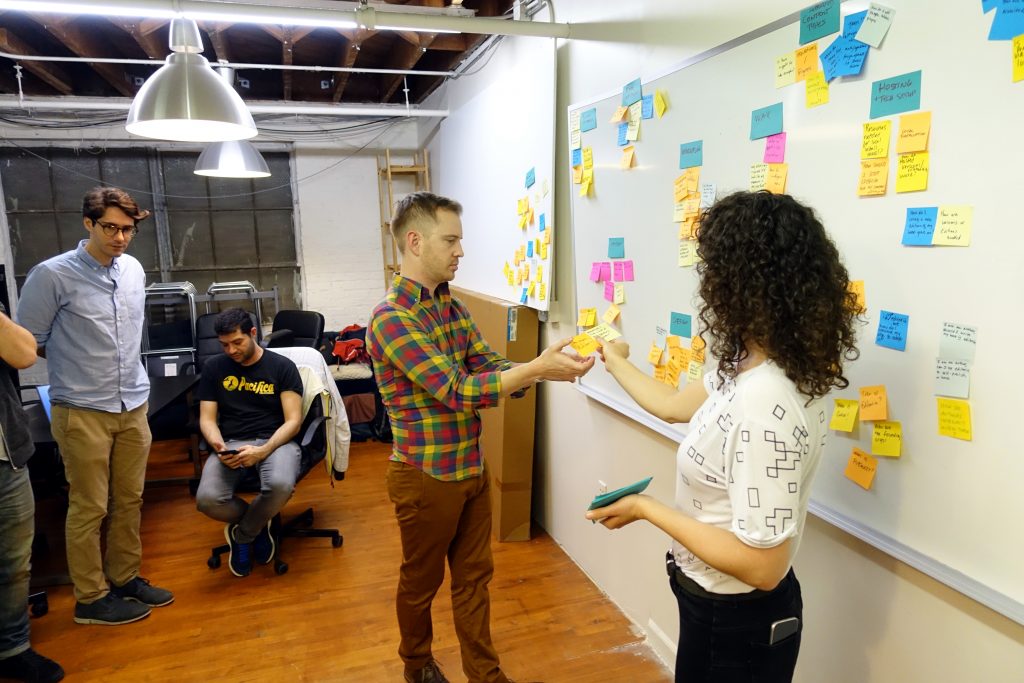
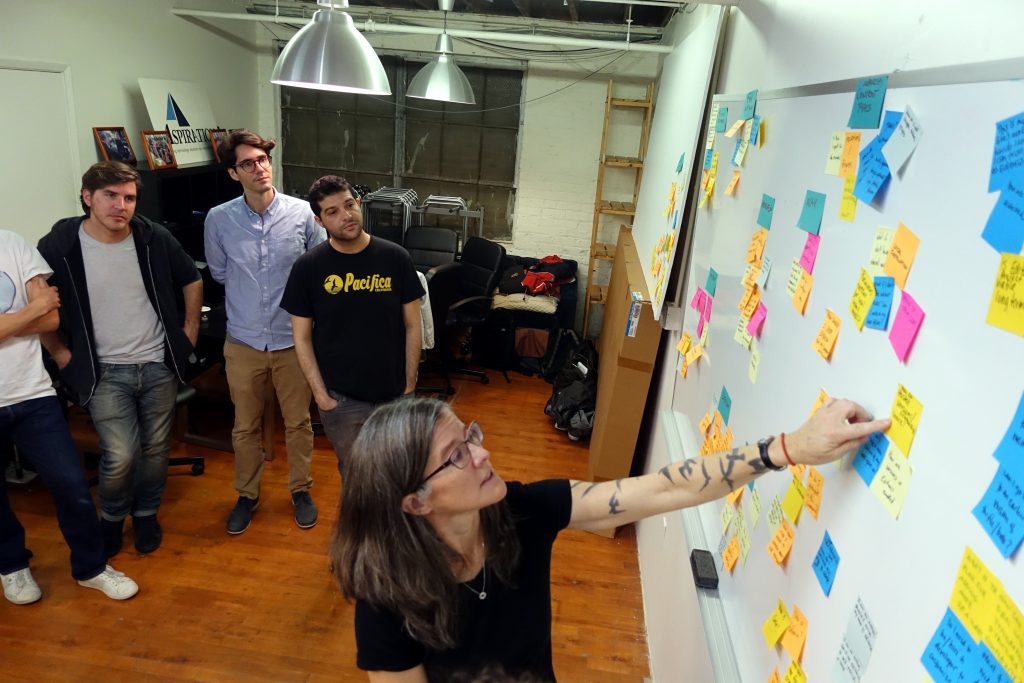
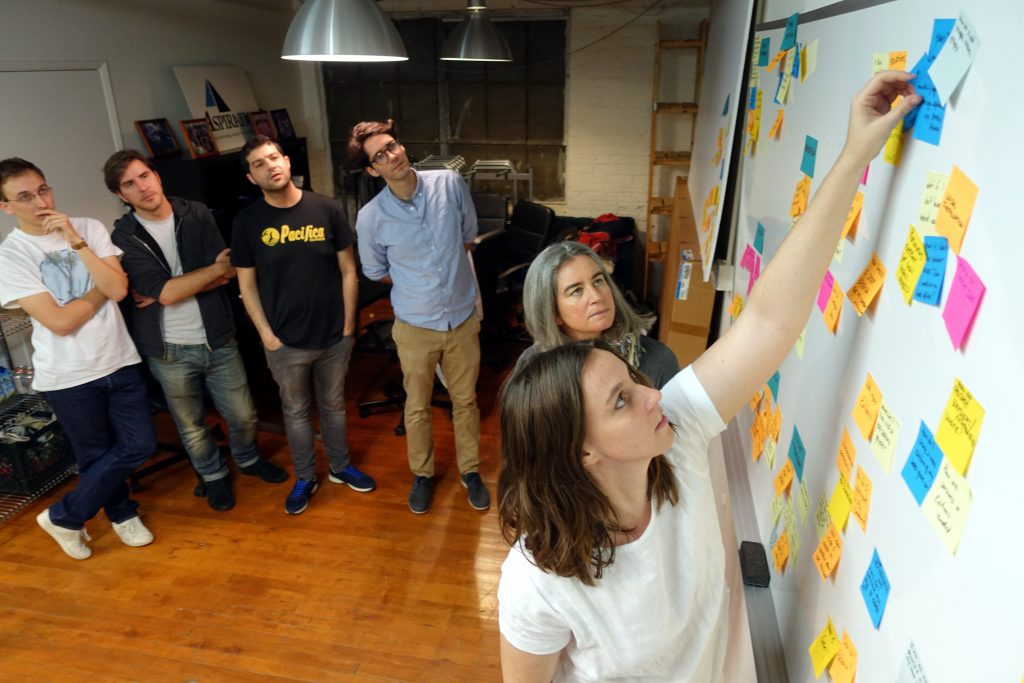
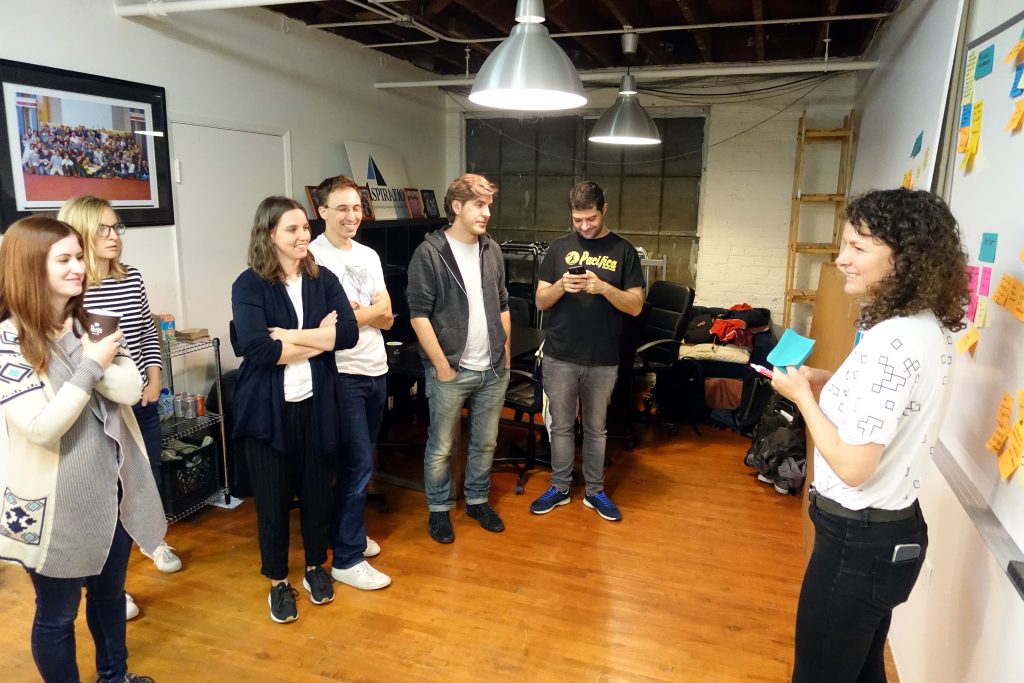
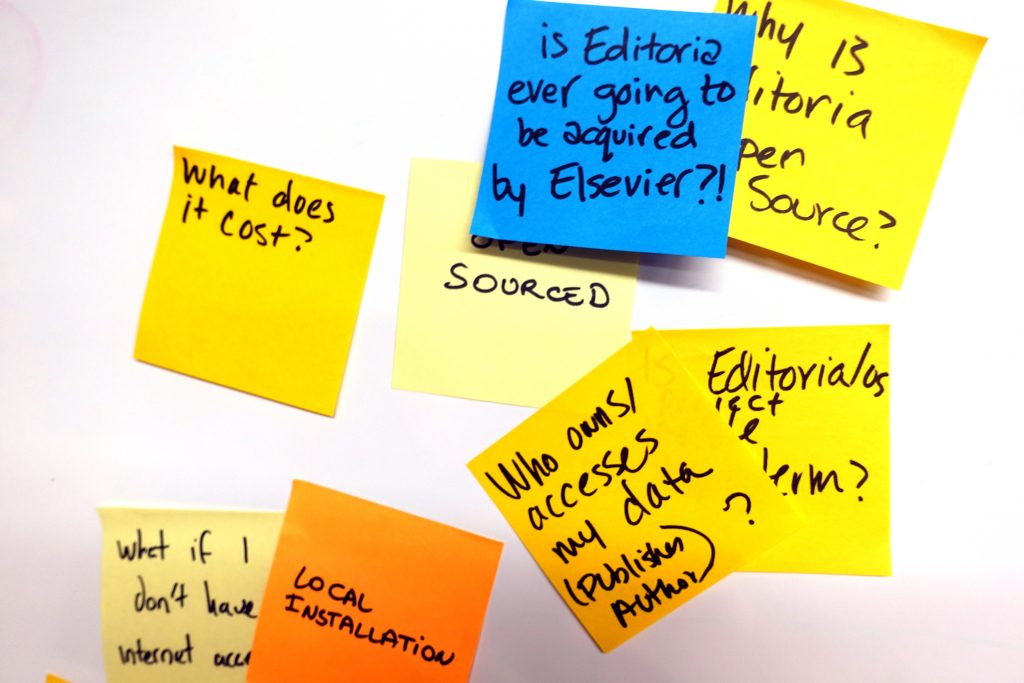
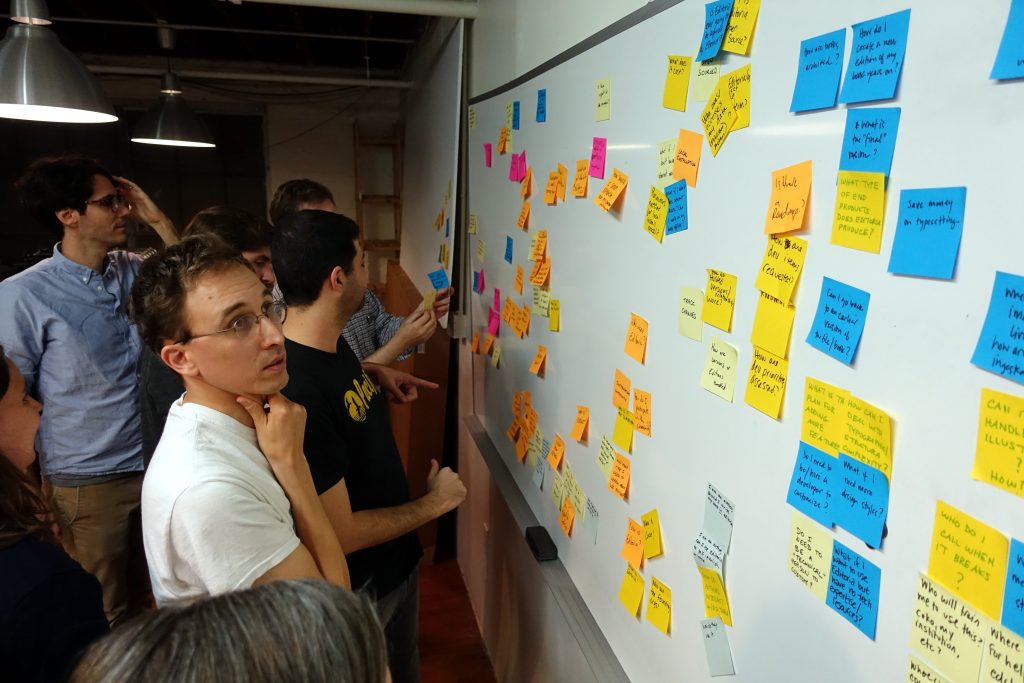
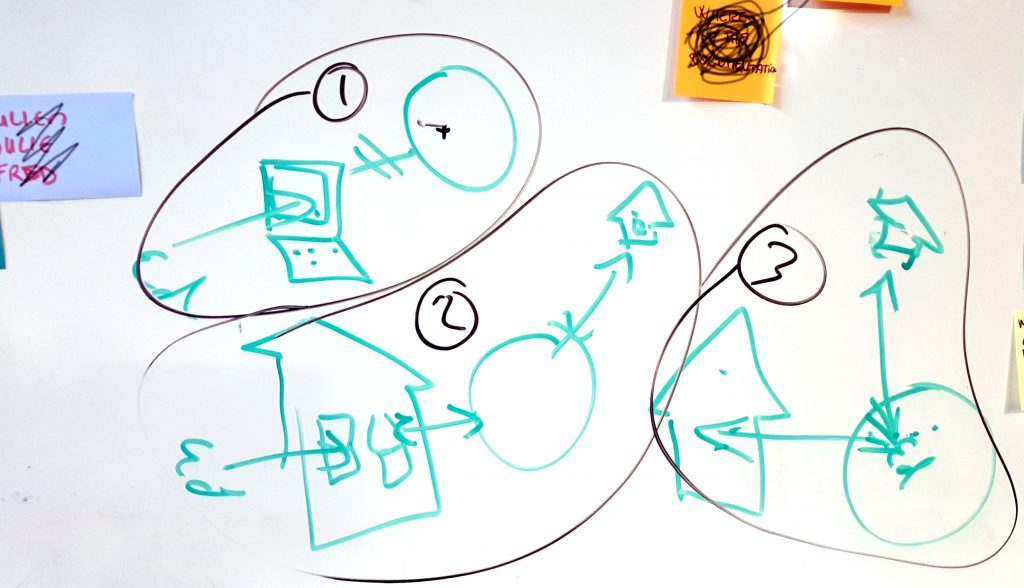
Day one of the 3 day Book Sprint in San Francisco (at the Aspiration offices) is done! 2 to go!










In the next days I’ll be in Montreal, both Coko and Book Sprints are presenting at Force11 so will have a heap of fun!
Then next week it is a big Editoria week. We start with a 3 day Book Sprint about Editoria. There will be about 15 of us attending and facilitated by Barbara. On the Thursday is a full day Editoria community event featuring publishers from around the world, Friday we will have some workshops including one on paged.js… and then finally, we will have a Coko Surf Club meet on Saturday 🙂 … then to NZ Sunday night. Busy!
If you are at Force11 in Montreal, make sure you attend this!
Barbara Rühling, CEO of Book Sprints will be presenting.
Scholarly communication regularly faces the challenge to communicate across the gap between the expertise of the subject-matter experts and that of their readers, students, other disciplines, or communities outside of academia. Collaborative writing sprints are a chance for scholars to engage their readers directly by making them co-authors in the writing process.
The Book Sprints methodology has been used for ten years to create collaborative publications; by professors, students, and learn design experts to write open textbooks; by representatives of different disciplines mapping and defining an interdisciplinary field in formation; by academics and community activists to formulate guidebooks and manifestos.
Guided by a Book Sprints facilitator, the scholars and practitioners with different backgrounds constantly check each others biases and jargon, and thus ensure a publication both reader-friendly and useful for the target audience. And because the target audience is already engaged, each contributor becomes a valuable multiplier in the dissemination of the publication. The contributors are supported by an online collaborative writing environment developed by the Collaborative Knowledge Foundation and a team of Book Sprints’ designers and copy-editors co-creating the book in a five-day sprint.
This session explores some of the learnings of the last ten years in collaborative scholarly writing and publishing.
One of my fav moments of 10 years of Book Sprints
Seems hardly possible but it’s 10 years since I started Book Sprints.
When it first started, I was at a party in Croatia and had a quick chat with a buddy – Tomas Krag. I came away from that chat thinking he had actually brought a group of people together for a week and they had written a book, but it was noisy, a few drinks were involved, we only chatted for 5 minutes. So I thought… this must be possible! So I then approached a friend – Leslie Hawthorn – at the Google Open Source Program Office and said I wanted to produce some books this way and would the office put in a little $ to make it happen… she did, and I booked two Book Sprints – PureData (Croatia) and Inkscape (Paris).
I didn’t find out until many months later, that at the ‘Book Sprint’ Tomas spoke o,f they got folks together for a week and wrote the table of contents… it took months to write the actual book… so, here I was pitching the idea to Google based on a total misunderstanding from a short chat at a party! One of the happiest misunderstandings I ever had.
I then spent some time trying to get other people to do Book Sprints. I didn’t want to do them… I had no idea how to do it. I was sure there were people out there somewhere better to do it than me… But I couldn’t find anyone else who wanted to do it or had any clues on how it could be done. I reached out to some folks in the publishing industry… surely they would be interested I thought! Think of the efficiencies! How naive I was… the publishing folks turned out to be exactly the wrong people to involve… they were all about long, slow processes. They also liked to disrupt the writers with edits to make them complete rethink everything they wrote… totally the wrong approach in what would be a high pressure, time-compressed environment.
So, eventually I gave in… I’d have to do it myself and work it out myself. I wasn’t happy about it… I wanted it to be an easy ride.
The next 4 years or so was an interesting ride though! I had to convince people that this was a real thing so they would do it… committing to a full week is quite a thing… but at the same time, I had no idea how to do it. I remember every Book Sprint back then being terrifying. The sense of failure was present at each event and loomed large, but somehow I achieved a certain amount of success and inched the process forward each time… It took years for me to really understand what I was doing. I had no idea how to facilitate, I had no idea about books, I had no idea about sprint processes. It was all made up as I went along. I remember, years into the journey, doing Book Sprints that were getting better and better, but still having no idea why. I didn’t have a framework for understanding what I was doing… I just did it. I didn’t know how to think or talk about it. Pure instinct and a kind of muscle memory was developing…
When I think back on that time, I wonder…why on earth did I continue doing it? Why didn’t I give up? I can only say that, looking back. I am astonished at how stubborn I…err… must have been…(cough cough)… blame my mama, she’s every bit the same… 😉
The time when I realised it really was ‘a thing’ is when I trained Barbara and I had to come up with a way to describe what a Book Sprint was and how it was done.. this was 4 years or so in. I remember meeting her at a cafe and thinking… I have no idea if you will make a good Book Sprint facilitator… I don’t even know what Book Sprint facilitation is !! how would I know? Might as well give it a go….turns out, luck of the gods. Barbara was exactly the right person to train. I’m still amazed at my luck. I have since trained 4 others and only 2 made it through (Laia and Faith, both amazing facilitators). A 50% hit rate at best, and yet somehow, through pure luck, Barbara turned up at the right time and turned out to be the right person.
Since then Barbara and I built a company and I handed it over to her as CEO a few years ago. it has gone from strength to strength. I haven’t done Book Sprints for 3 years now as I have been focused on work under my Shuttleworth Fellowship, and I was often jealous of some of the Book Sprints the team did that I wasn’t part of… who wouldn’t want to go to Nigeria during the Ebola times and help a group of activists write a book of short stories about life for various minorities in a very harsh, conservative, political environment? Or go to Burundi to write a policy document with the government on extractive industries… or travel to Kigali to write a book about the economics of water in Africa… I mean… yes!
But I sat on the sidelines and watched the company and the method grow and flourish. Also not a bad thing to do.
At the end, an amazing thing. I’m super proud of the method, and of the company. Of all the things we have done. But, interestingly, I’m most proud of having started an organisation that is made up of such wonderful people. I love each one of them. Amazing people, all of them.
Happy birthday Book Sprints 🙂 And thank you…
Made in a Book Sprint where also the participants were a lot of friends of mine 🙂
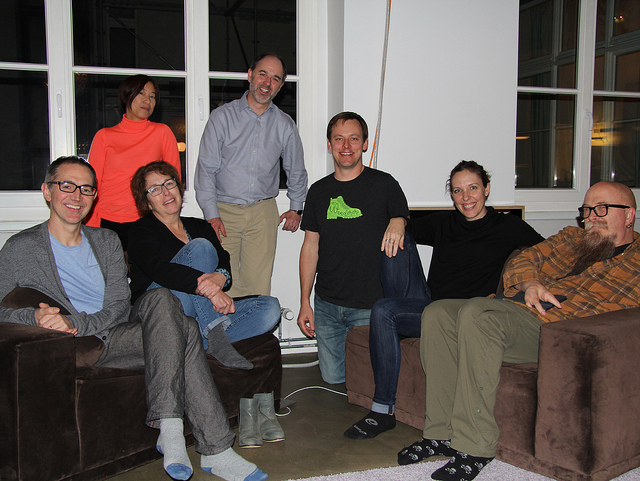
In our book, we propose a way forward for us as a community to build an ideal future truly supportive of researchers. We believe we can work more effectively together than when alone by drawing on the existing work of others. But more than that, we would be even more powerful as a community based on values that come out of this collective interest. Coordination is difficult, and this is best addressed not by any set of rules, but by working more effectively together.
We offer a number of current observations: examples of successfully run efforts that support research communications and descriptions of anti-patterns which have an opposite effect. We then delve into core issues plaguing our efforts — funding, governance, rewarding, and communication — and provide suggestions based on patterns and opportunities embedded within these issues we have identified. We close with ten shared values that most exemplify what brings us together as well as how we can work more effectively as a community. The aim of this book is to bring Supporters together as a community. Let us start the conversation about what this means to practice these values in our collective endeavor.
Many years ago when I was experimenting with Book Sprints I suggested to the Free Software Foundation that we do a Book Sprint at the LibrePlanet meeting in Boston (2009). The idea was to make a book introducing people to the command line. I asked Andy Oram (friend and editor at O’Reilly) if he would help me put it together and so we announced it and both turned up at the event to make it happen.
The Book Sprint was meant to be an opt-in. So ‘anyone’ who was at the event could come in and write the book. Of course ‘everyone’ wanted instead to go to the presentations! So we had almost no one from the event attend…it felt very lonely for a bit…
Then, a few people turned up online and because they couldn’t participate with the conference they wanted to be part of LibrePlanet and contribute to the book. It was an astonishing thing. More and more people turned up. I remember going to bed on the first night (it was a 2 day Book Sprint) and feeling like all was not lost, waking up the next day and a whole lot more of the book was done. It was amazing.
There were some fantastic contributions and we coordinated it all through online chat (I think it was IRC but can’t remember). I remember in particular having a really lovely chat with one participant – I think their name was ‘Freaky Clown’ but I can’t remember for sure. I remember a sense of solidarity and peer-ness when talking to them about the book and the process. There were a lot of things that made that process special.
Anyways…we produced the book in 2 days and it is quite an amazing work.
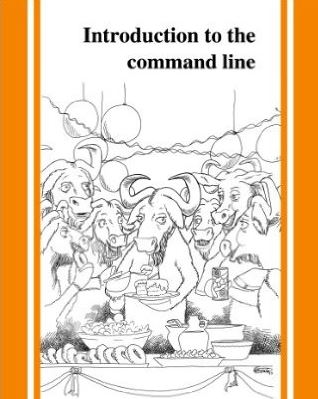
It was on offer from FLOSS Manuals (still there – http://write.flossmanuals.net/command-line/introduction/), but more interestingly the Free Software Foundation offered it for sale – https://shop.fsf.org/books-docs/introduction-command-line
The cool thing about that was (apart from the FSF publishing it which was already pretty cool) that they used their own cover art etc and made it their own… freedom in action.
Apparently the book has been very successful – its used as a textbook, has been reviewed a lot, and seems to get a lot of use – but imagine my surprise when I saw in the LibrePlanet meet of 2018 this program item:
Introduction to the Command Line brainstorming session
We’re updating the popular 150-page Introduction to the Command Line. What do you think should be in the new edition? We’ll be discussing content and process for updating this important work.
A product of a partnership between the FSF and Floss Manuals, this book gives new computer users a gentle, beginner’s window onto Bash, vim, a few scripting languages, and other key tools offered on the Unix/GNU command line. A lot has happened since the book was released in 2009. We want to include new developments without substantially increasing the length of the book.
Pretty cool! Andy hosted the session and I hope it went well… very nice to think these crazy things you are a part of become something and take on a life of their own….
I even found the only image I know of taken at the event (by me) when (on the second day) some folks took pity on us sitting by ourselves and came in and contributed…Andy on far left.
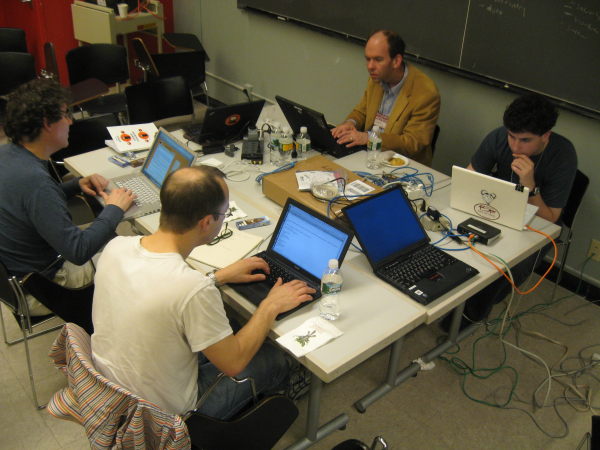
I also found this old blog I did on the FSF site –https://www.fsf.org/blogs/community/introduction-to-the-command-line
Interview Dirk from Fabriders recorded with me from earlier today. Focusing on collaboration, Book Sprints, FLOSS Manuals, and Coko.
Nice short photo essay about a recent Book Sprint
https://www.booksprints.net/en/blog/what-a-book-sprint-looks-like-a-photo-story/
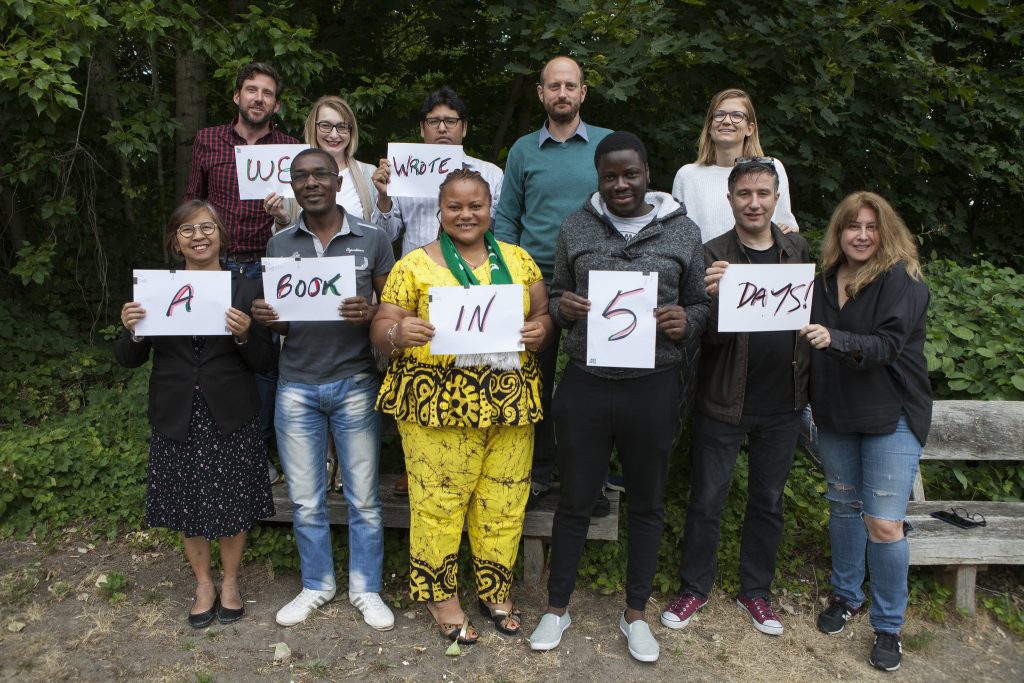
They look awesome…the books took 3 days to write in a Book Sprint (edited and illustrated as well). Output from Editoria to book-formatted PDF, send to the printers… printers took 3 times as long to print the books as it took us to write it and make the design-ready copy 🙂
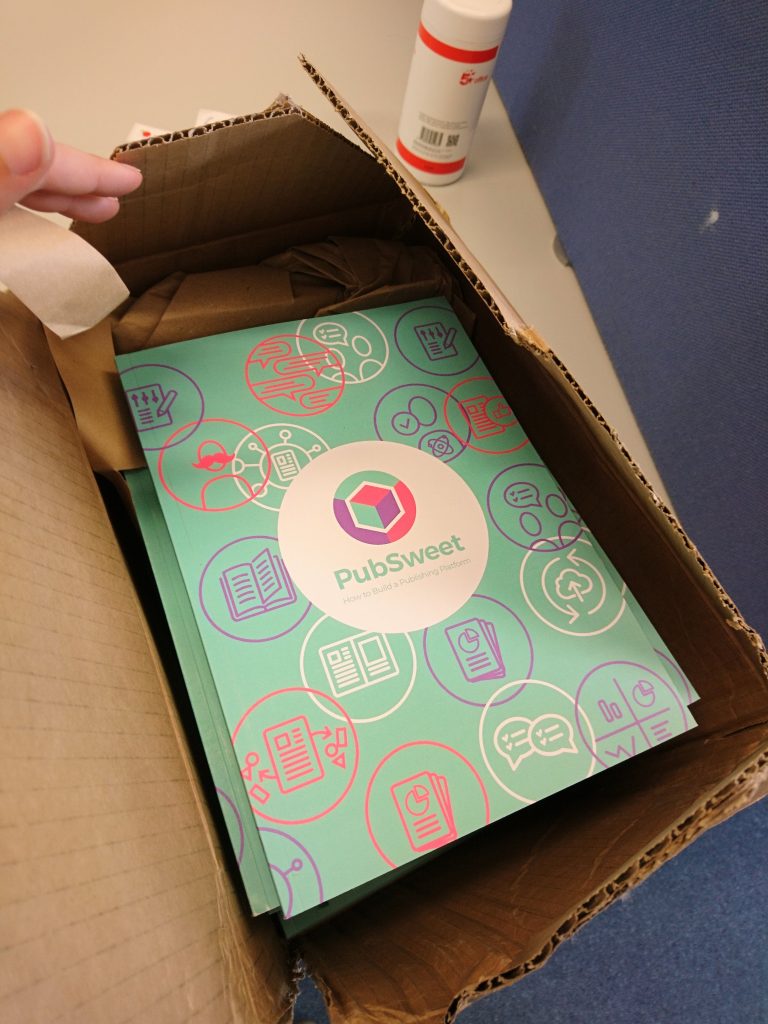
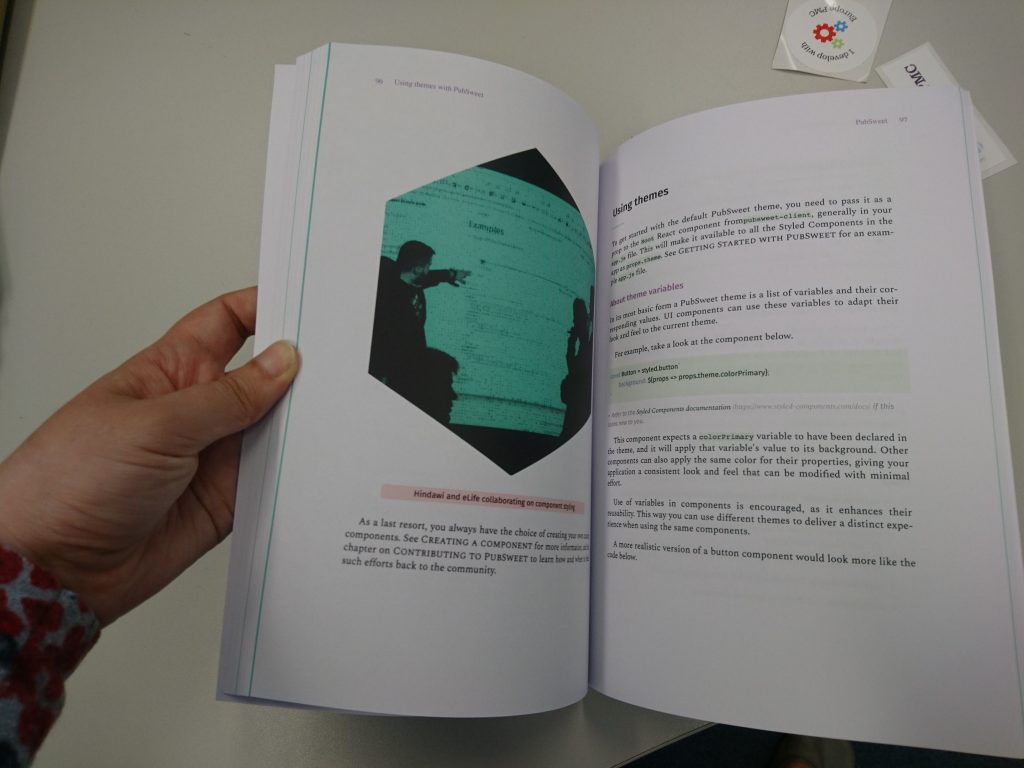
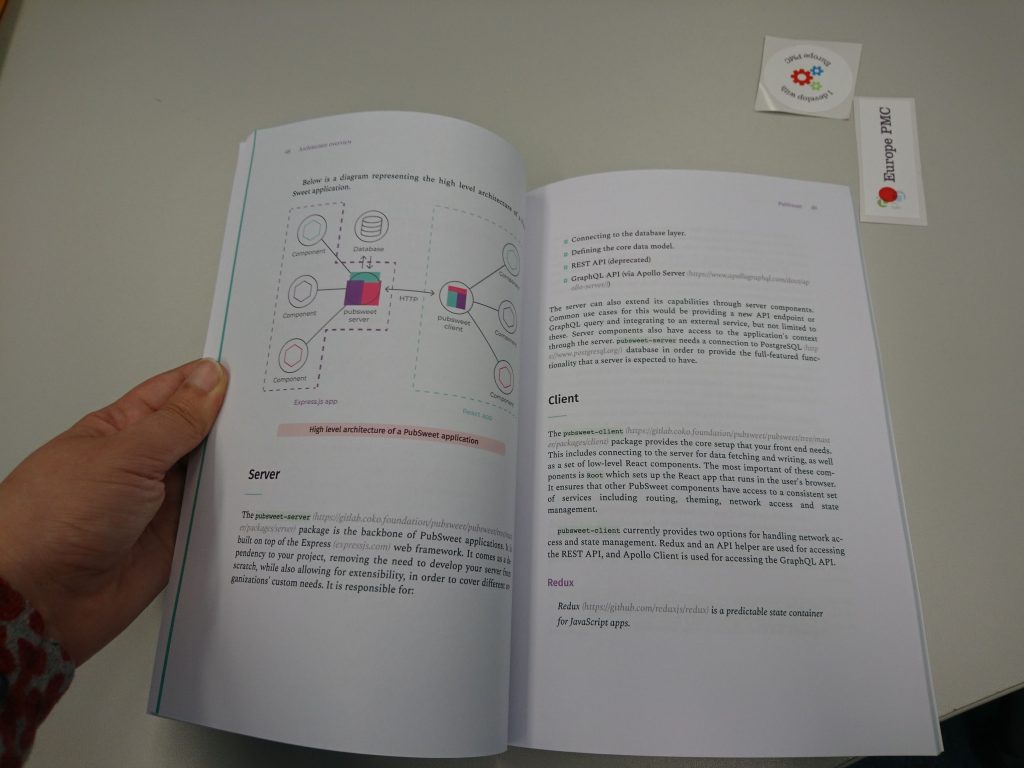
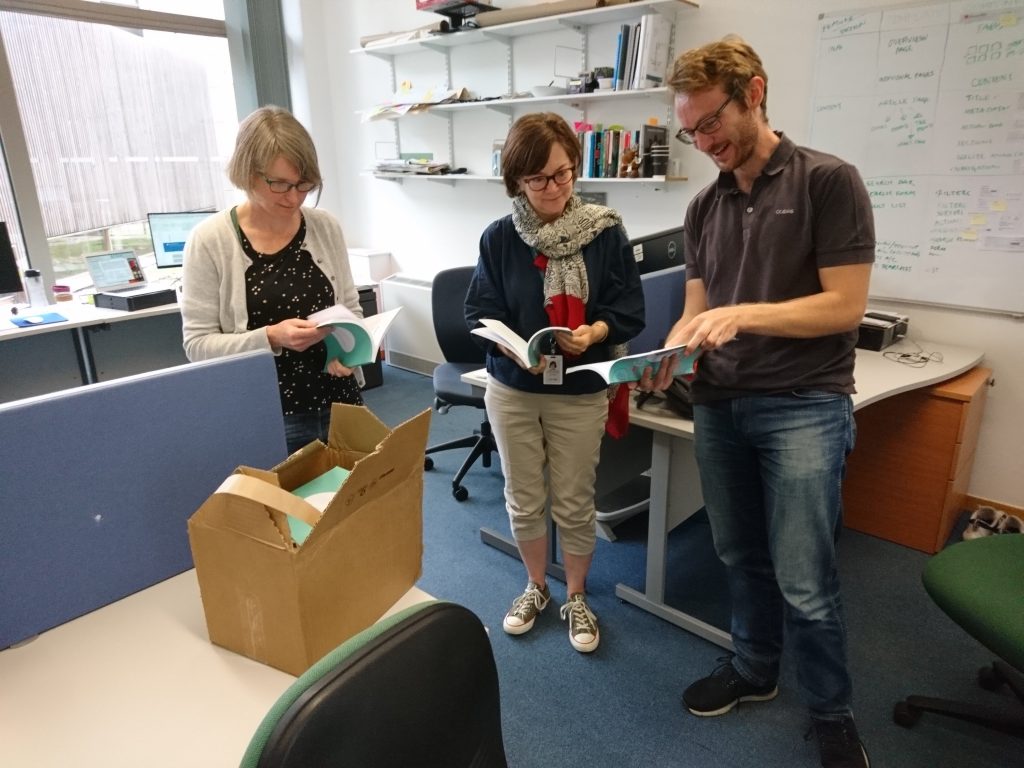
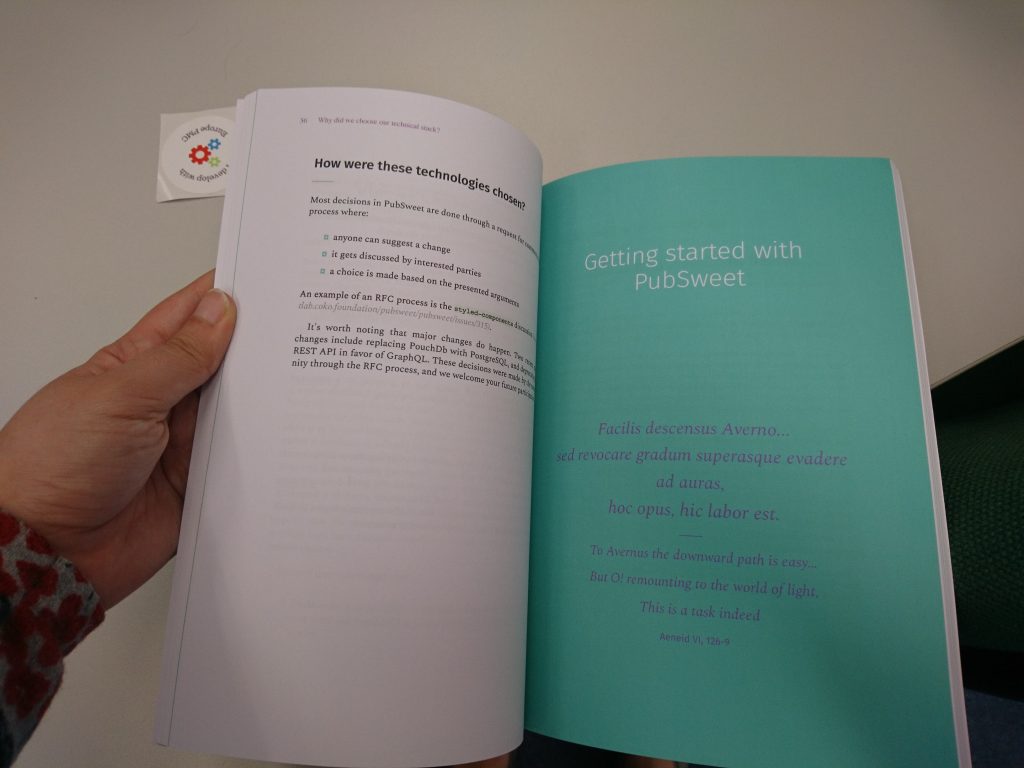
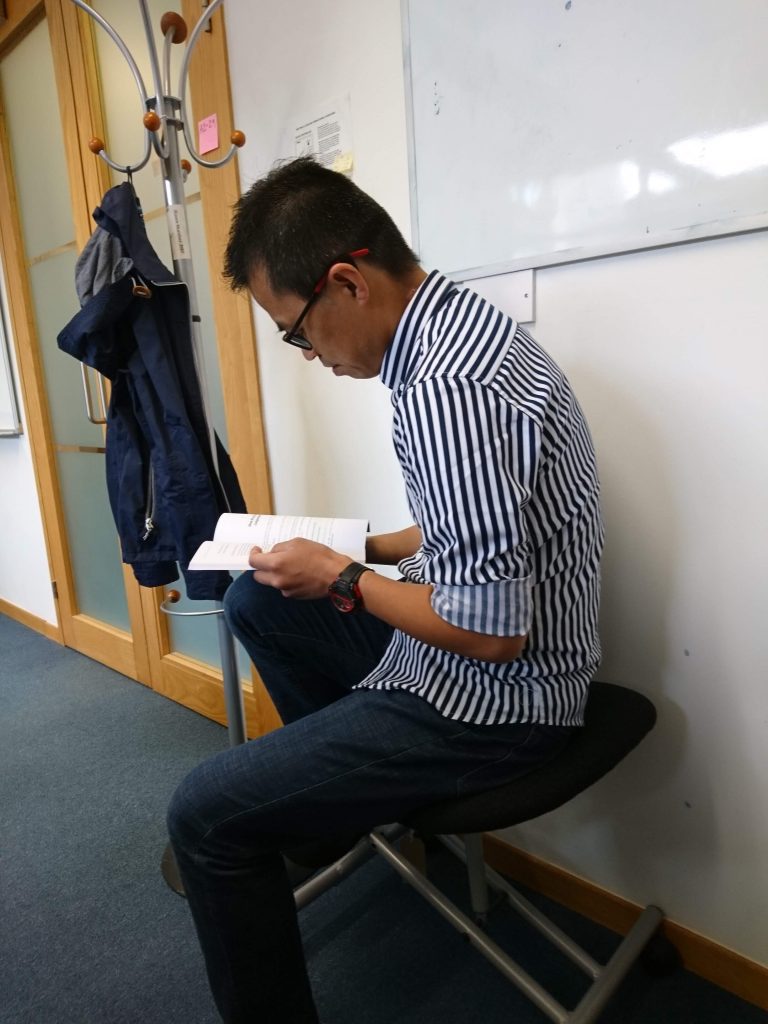
So… you might be wondering … just what is this book all about? Well, it’s about some of the technology the Coko community is building. And what does that tech do? In the main, it helps you build publishing platforms… And why is that important? It’s important because the publishing industry has been crippled by expensive, dysfunctional, ‘big box’ platforms for a very long time. It’s really terrible – these systems have been sitting pretty and earning a lot of money off the backs of the publishing of critical information that, at the end of the day, needs to get out there so we can move the world along. These proprietary platforms slow down the sharing of essential information and make it expensive at the same time – and we are aiming to put a stop to that.
Publishing platforms have been a mystery to many – how do you make them? What should they do? How do we even think about it? It’s not easy because no one is sharing their learning. Why would ‘big box’ vendors want to share what they have learned about building publishing platforms with potential competitors? No good reason. In fact, quite the opposite – the harder it is for ‘others’ to build publishing platforms, the better for them, they can keep their clients’ data incarcerated within their systems that much longer, and that means one more year living the good life, raking in the revenues (their platforms are unbelievably expensive).
Many efforts have been made to get out of these systems but they have largely failed. Until now… Our aim is take these suckers down. We’ll do it one step at a time, one publisher at a time. We’ll demystify the process of making publishing platforms. We’ll build them faster, cheaper and better. We’ll turn them into something you can run for a tiny fraction of your current vendor agreement. …we’ll work it all out because the community is smart, experienced, talented and growing. Plus, they are having a great time doing it. That’s the thing about communities with a mission – if they are making progress and having fun, they are unstoppable.
That day is coming. The good news is… it’s all open source. You can’t buy it from us, cause we have nothing to sell. We are literally giving it away….
Write to me if you want a copy of the book 🙂 I’ll mail one to ya…y’know…when I back from surf’n….